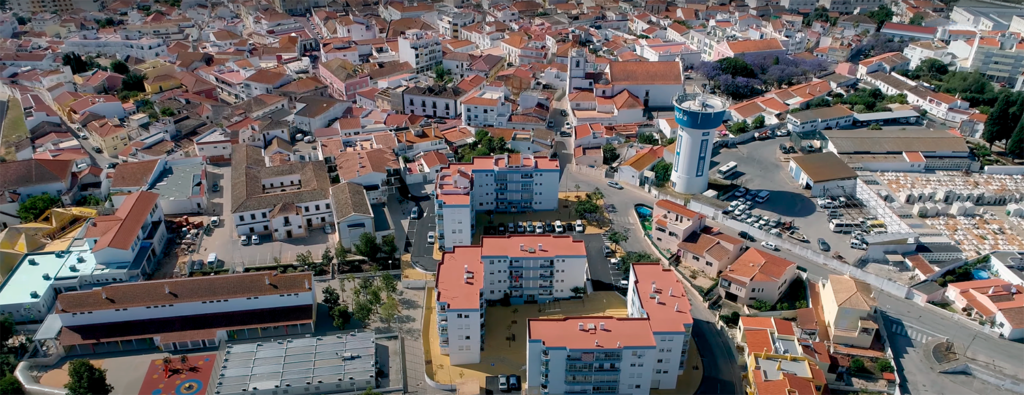Lagoa has already approved the Urban Rehabilitation Operation of the city and the Regulation of the Municipal Program to encourage and support urban rehabilitation in its ARU (Urban Rehabilitation Areas).
With the approval of the Strategic Urban Rehabilitation Program (PERU), at the Lagoa Municipal Assembly, held on 15 September, the Municipality carries out the Urban Rehabilitation Operation (ORU) for the city of Lagoa, an important public policy management tool of rehabilitation and regeneration of the city, in which the Municipality assumes a comprehensive profile that combines intervention logics as distinct as those of regulator, investor, dynamizer and facilitator.
Based on four strategic axes, PERU Cidade de Lagoa aims to “safeguard and enhance the heritage, through sustainable rehabilitation, integrated urban management and the empowerment, recognition and dissemination of existing exceptional heritage”.
Other objectives are "to increase the resident population and levels of housing comfort and strengthen cohesion and community values", as well as "to promote diversity, inclusion and economic sustainability, creativity and innovation, with an inclusive and sustainable course of action and improve mobility and environmental sustainability with the aim of increasing community resilience”.
With an execution period of 10 years (2021-2031), the PERU city of Lagoa foresees an investment of more than 12 million euros, «in the creation and rehabilitation of equipment and public space, but also in the creation of (public) housing through the acquisition for the rehabilitation of vacant fractions and degraded or ruined buildings».
The Municipal Program to encourage and support urban rehabilitation, #Rea(bili)tarLagoa, implements the provisions of article 75 of the Legal Regime for Urban Rehabilitation (RJRU), which allows municipalities, through the creation of their own regulation, to grant financial support rehabilitation interventions carried out within the scope of the ORU.
The financial support provided for under the approved regulation is divided into technical support, provided by the municipality, in determining the works to be carried out necessary to raise the level of conservation and in the allocation of financial support for carrying out rehabilitation interventions, carried out with a project.
It is an incentive with a dual function: «encouraging the economy with the “creation of work opportunities” for designers and for companies and entrepreneurs linked to civil construction», as well as «reduction and exemption from urban taxes, of which highlight the reduction of fees related to the licensing of building works or the admission of prior notice” and also “an incentive aimed at leveraging the carrying out of rehabilitation interventions”.
There are also "incentives to combat desertification" (reduction of IMI, in the year of the work, for conservation and maintenance works that do not reach the 2 levels of the conservation index necessary to obtain the tax benefit provided for in the Statute of Benefits Tax (EBF), and the reduction of IMI on buildings and fractions leased for permanent housing, under a controlled-cost lease regime);
Other incentives are of an 'environmental nature', with a reduction in the amount of fees for issuing a License or Admission of Prior Communication for buildings with renewable production systems, and a reduction in the value of the IMI for buildings or fractions intended for housing with a production system renewable, incentive applicable to photovoltaic panels for self-consumption, central heating systems and geothermal heat pumps for air conditioning'.
There are also "incentives for the creation of private access charging points, with exemption from admission fees for prior notice on building works for the adaptation of the street to create access and installation of electrical infrastructure for charging electric vehicles".
The approved documents are available for consultation on the Municipality website by clicking here.
The Câmara de Lagoa also announced that, on 20 September, the Public Discussion of the remaining seven Urban Rehabilitation Operations in the municipality of Lagoa had started, in a process that lasts for 20 days and runs until 11 October. The PERU projects presented can also be consulted by clicking here.



















Comments